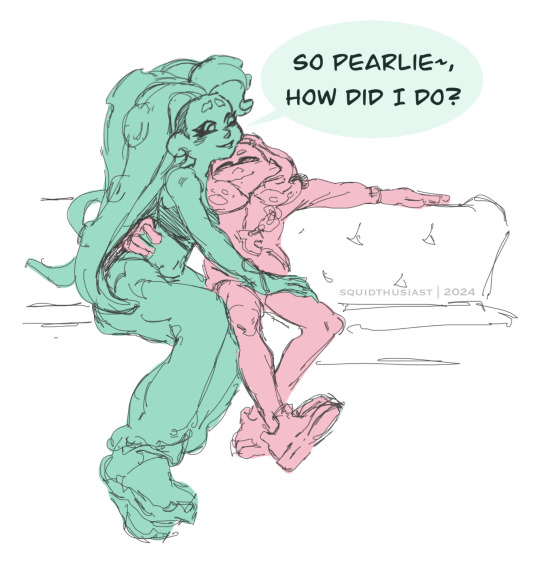#Passivation
Text
Polycrystalline formamidinium lead iodide (FAPbI3), widely used for making perovskite-based solar cells due to its superior optoelectronic properties, suffers from defects in its crystalline structure. Researchers from the Gwangju Institute of Science and Technology (GIST) introduced hexagonal polytype perovskite (6H) into the cubic polytype (3C) FAPbI3 to reduce these defects, which led to improved power conversion efficiency and operational stability of perovskite solar cells, when compared with their existing counterparts.
Solar energy is a promising way of reducing our dependence on fossil-fuel-based energy resources and opt for cleaner energy forms. Over the years, solar cells that can harness this renewable energy have undergone significant progress.
Metal-halide perovskite has gained significant attention as a promising light-absorbing material for solar cells due to their exceptional optoelectronic properties which enable them to efficiently generate energy from sunlight.
Read more.
7 notes
·
View notes
Text
i went to get my t-shot yesterday and it took me an hour and a half to get to the clinic and as soon as i got on the bed the nurse dropped my t-shot and it broke and now they're trying to make me pay for the replacement. i think the fuck not lmao
#why should i have to pay money because SOMEONE ELSE dropped my medication!!! make it make sense#also they kept referring to 'the medicine that got broken' please drop that youtuber apology line and lose the passive voice#it did not 'get broken' YOU BROKE IT#madness. utter madness.
44K notes
·
View notes
Text

Quick Tips on Electrogalvanizing.
https://www.noblemetalcoating.com/
#Electrogalvanizing#MetalCoating#CorrosionProtection#Electroplating#MetalFinishing#GalvanizingTips#SurfacePreparation#CoatingThickness#ChemicalBalance#Passivation#PlatingProcess#MetalCare#IndustrialCoating#QualityControl#MetalProtection#GalvanizedMetal#PlatingTips#DurableCoatings#ElectroplatingTips#MetalMaintenance
0 notes
Text
I didn’t miss that social cue I just thought it was stupid
#an autobiography#skravler#*editing tags to add: ftr i dont like the addition to this post and it was not meant to have the 'use your words like an Adult' tone#it's abt refusing to play out bad/bigoted/uncomfortable/pointless social scripts; not abt fighting passive aggression w more of it#and calling yourself a real adult for it
183K notes
·
View notes
Text
Passivation
Passivation
Metal surface passivation treatment is a common method of metal surface treatment, which aims to change the chemical properties of the metal surface to form a protective layer with good corrosion resistance and wear resistance, thereby improving the corrosion resistance and service life of metal materials. This article will introduce the principles, common methods, and application fields of passivation treatment.
1. The principle of passivation treatment
Metal materials are prone to oxidation reactions in the atmosphere, producing metal oxides, which can lead to metal corrosion. And passivation treatment forms a dense oxide film on the metal surface, blocking the contact between the metal and the external medium, thereby playing a protective role for the metal. This type of oxide film can reduce the activity of the metal surface, making it less prone to oxidation reactions under certain conditions, thereby improving the corrosion resistance of the metal.
2. Common passivation treatment methods
1) Acid pickling passivation: This is one of the most common passivation treatment methods. By immersing metal materials in a dilute acid solution, the metal surface reacts with acid to form a dense oxide film. Common acids include nitric acid, phosphoric acid, and sulfuric acid. The acid pickling and passivation method is suitable for surface treatment of metal materials such as iron, copper, and aluminum.
2) Electrochemical passivation: This method utilizes the principle of electrochemistry to apply an external current to the metal surface, causing an oxidation-reduction reaction to occur on the metal surface, generating a dense oxide film. This method has the advantages of good passivation effect and simple operation, and is suitable for different types of metal materials.
3) Chemical deposition passivation: This method involves depositing a layer of metal compound on the metal surface to form a protective thin film. Common chemical deposition passivation methods include galvanizing, chromium plating, and nickel plating.
3. The application areas of passivation treatment
Passivation is widely used in various fields, especially in the manufacturing industry, playing an important role. The following are several common application areas:
1) Automotive manufacturing industry: For the manufacturing of automotive components, passivation treatment can improve their corrosion resistance and extend their service life. For example, metal components such as the chassis and body of a car often undergo passivation treatment to enhance their corrosion resistance.
2) Electronic and electrical industry: In the manufacturing process of electronic and electrical appliances, metal components often require passivation treatment to improve their corrosion resistance and conductivity. For example, metal contacts and circuit boards in electronic products can be passivated to increase their stability and reliability.
3) Construction industry: In the manufacturing of building structures and equipment, metal materials often require passivation treatment to improve their corrosion resistance and service life. For example, steel structures, pipelines, etc. can be treated with passivation to prevent corrosion.
4) Aerospace field: In the manufacturing process of aerospace vehicles, metal materials need to have good corrosion resistance and wear resistance. Therefore, passivation treatment has important application value in this field, which can improve the service life and safety performance of aircraft, rockets, etc.
Different passivation treatment methods have wide applications in different application fields. In practical applications, appropriate passivation treatment methods should be selected based on the characteristics and specific requirements of metal materials to achieve the best results.

0 notes
Text
death isnt enough. i need to never have existed
#bpd#actually bpd#actually borderline#bpd thoughts#bpd safe#bpd vent#actually mentally ill#borderline personality disorder#cluster b#tw sui ideation#tw depressing thoughts#tw depressing stuff#passive suicidality
4K notes
·
View notes
Text


We know what you are 🫵🏳️🌈
#off the hook#marina ida#pearl houzuki#pearlina#splatoon fanart#splatoon#my art#waking up to that new song was the best thing ever#not surprised they absolutely demolished shivrye#also marina and I are so autistic…#didnt catch the passive aggressiveness either rip#splatoon 3
7K notes
·
View notes
Text




Nightmare and Passive except Passive is a ghost that only Nightmare (and maybe a few others) can see ^^
3K notes
·
View notes
Text

bring your son to work day
#art#twisted wonderland#twisted wonderland spoilers#tsumsted wonderland#sorry this might be it guys#just kind of burnt out right now#i am enjoying the event though! i love these silly beanbags and their charming little adventures#can't wait for silver-tsum to wake up just long enough to take a bullet for malleus-tsum#and i extra extra love malleus and his beanbag both being SO passive-aggressive about missing the pile-up#the solution: DANCE PARTY#APPARENTLY#between this and glorious masquerade i'm starting to think this is malleus' solution to everything#(is this how episode 7 will end) (we DO traditionally get an end-of-episode rhythmic...)#also a+ some truly excellent spritework going on in this on#(sebek crunches down slightly 'RIDE ME WAKATSUMSAMA') (long beat) (malleus and tsum just sliiiiiide away screen left)#genuinely so much funnier than a literal depiction could ever be#anyway i did some careful calculations re:the probability of upcoming cards that i absolutely need and long story short#i am key-poor but tsum!malleus-rich >:)#(immediately goes through and switches all his lesson sprites to having a tsum wobbling on his head) worth it#now watch next month they're going to give us a white rabbit rerun with malleus and/or lilia as the frilliest froufrou bunnies#and i will be thoroughly effed
4K notes
·
View notes
Text


When a certain someone keeps dropping into the shop too often and a demon has had enough.
#illustrator#illustration#digital artist#artist on tumblr#good omens#crowley#good omens art#aziraphale#gleafer art#good omens aziraphale#apology dance#passive aggressive literature#gaimanverse#sad frog face#aziraphale has priorities#ineffables#aziraphale x crowley#good omens comic#comic art#comic artist
4K notes
·
View notes
Text
When water vapor meets metal, the resulting corrosion can lead to mechanical problems that harm a machine's performance. Through a process called passivation, it also can form a thin inert layer that acts as a barrier against further deterioration.
Either way, the exact chemical reaction is not well understood on an atomic level, but that is changing thanks to a technique called environmental transmission electron microscopy (TEM), which allows researchers to directly view molecules interacting on the tiniest possible scale.
Professor Guangwen Zhou -- a faculty member at Binghamton University, State University of New York's Thomas J. Watson College of Engineering and Applied Science -- has been probing the secrets of atomic reactions since joining the Department of Mechanical Engineering in 2007. Along with collaborators from the University of Pittsburgh and the Brookhaven National Laboratory, he has studied the structural and functional properties of metals and the process of making "green" steel.
Read more.
#Materials Science#Science#Water#Corrosion#Metals#Passivation#Reactions#Materials characterization#Transmission electron microscopy#Binghamton University
13 notes
·
View notes
Text





It's the grandpas with their past self aaa
Dream and Nightmare belong to Jokublog
#utmv#undertale#sans#nightmare sans#dream sans#dreamtale fanart#dreamtale#passive nightmare#dreamtale dream#dreamtale nightmare#ccinos cat cafe
3K notes
·
View notes
Text


Elon will probably have the community note removed, like he usually does on any facts that don’t conform to his opinion
#politics#media bias#passive voice#palestine#israel#gaza#the media is complicit#community notes#twitter#journalism fail
9K notes
·
View notes
Text



Thinking about little Dream and Nightmare😌🧡
Nightmare and dream belong to jokublog
#the babies#i love them a lot#something about nightmare taking care of dream instead of hating him is just so soft on my heart😭🧡#undertale#undertale au#utmv#undertale multiverse#passive nightmare sans#dream sans#little dream sans#artpepkin
2K notes
·
View notes
Text
If you can recognize how much of North America was cultivated over thousands of years by indigenous people, then you also need to recognize that a significant chunk of "wilderness" here is dependent on human intervention to thrive.
There are countless plants and fungi, from mushrooms to grasses to trees, that have been proven to do best when regularly harvested, whether it's because harvest makes them release seeds or clears away dead growth or provides more light to younger plants, cultivation means that harvesting is often to the benefit of the plant.
Which means that you also have to recognize that locking those plants away from people, even with the best intentions, can actually do horrible damage to their populations and to existing ecosystems.
There isn't an easy solution to this problem. Proper foraging isn't something that most people are taught anymore and many of these plants do not have significant enough populations right now to survive excessive harvest.
But going forward, as we work on restoring ecosystems and helping our planet (and our relationships to the land) heal, then we need to acknowledge that humans and nature are not separate entities and that we've always been dependent on each other.
8K notes
·
View notes
Text
so listen i fucking hate landlords but! i think we gotta stop making fun of landlords for "passive income" and stick to focusing on the way they, you know, get that income by exploiting people, by withholding the basic human right for shelter from others.
people love to be like oh landlords dont do any actual work like the rest of us, but like? a lot of disabled people cant do "actual work" either. people hate us because we collect ssi (if we can even get through those hoops) without working "real" jobs or creating any value that capitalism cares about. some of the stuff ppl say abt landlords sounds exactly the same. landlords DO suck but the way some of yall talk about them rlly shows that youre still stuck in a capitalist and christian and ableist mindset, where you think everyone should struggle to justify their existence, their right to food and shelter, their right to survive.
personally i think we should ALL get passive income (universal basic income <3) because we have inherent value regardless of how much we work. we just shouldnt impoverish our fellow people to do so!
4K notes
·
View notes